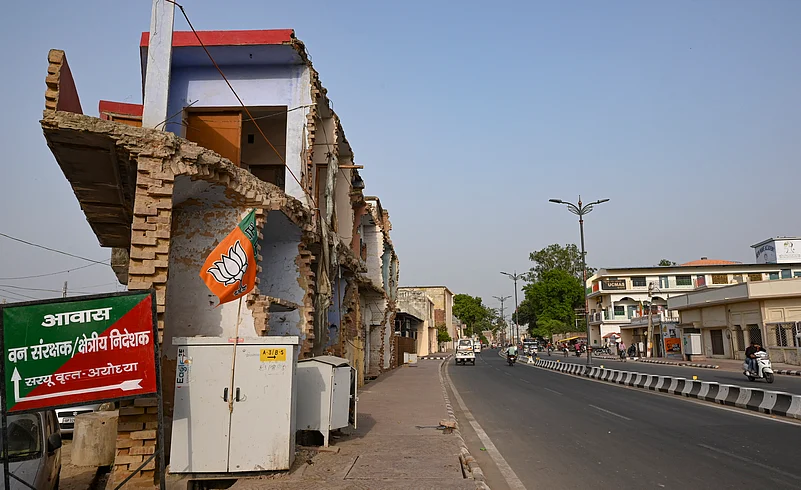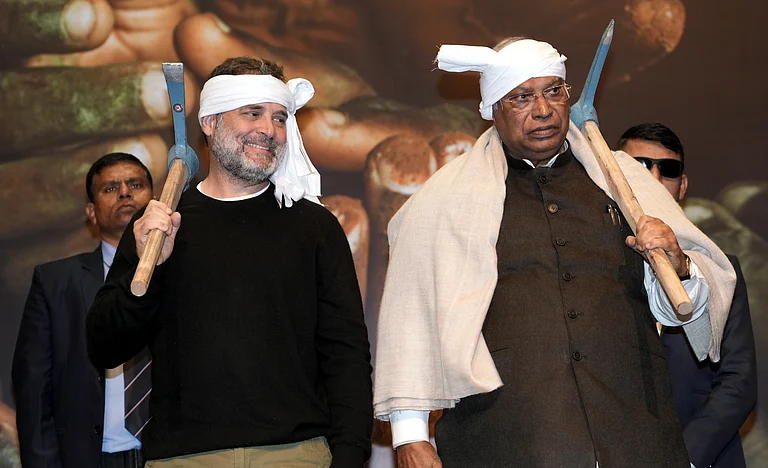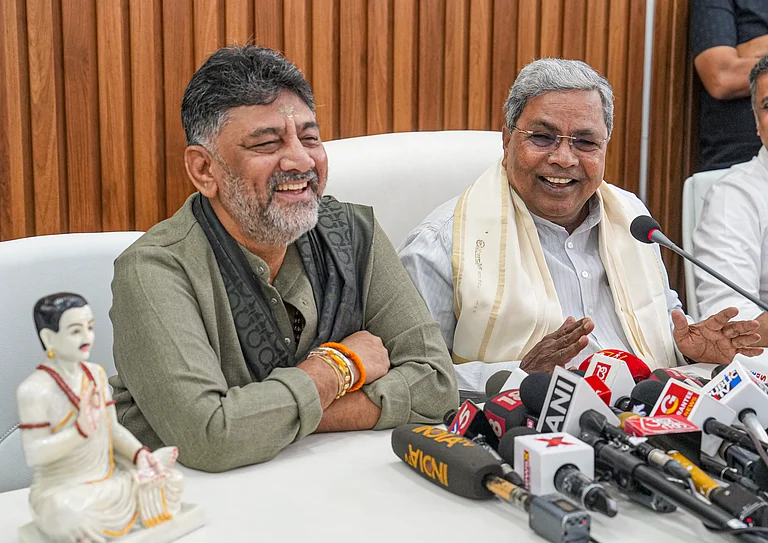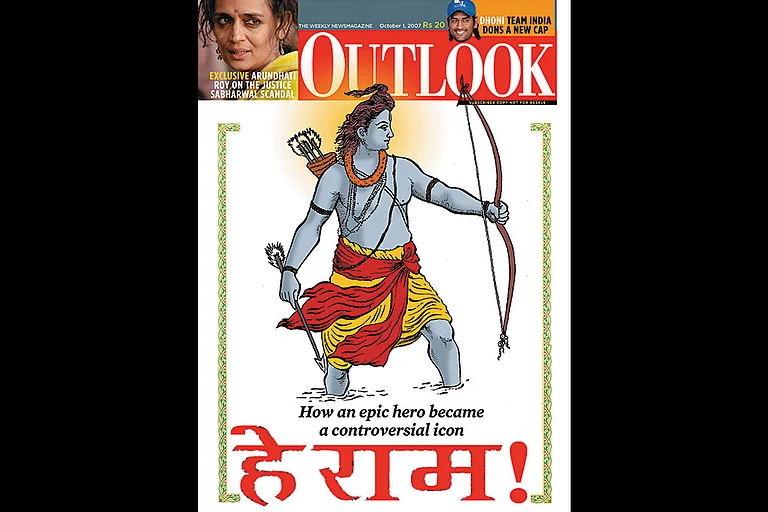The BJP losing the Faizabad constituency, which houses the much fabled Ram mandir, has an ironic quality to it. The saffron party gave Ram Lalla a home but—demolishing homes and shops—exiled its long-term residents. It invited the world to Ayodhya but snubbed the locals. The BJP’s Lallu Singh, as a result, lost the seat to Samajwadi Party’s Awadhesh Prasad, a Dalit, by around 55,000 votes. Even today, many Dalits are forbidden to enter temples, but Prasad has zipped into the temple town of the country. This victory carries one—or all—of the following imprints: plot twist, poetic justice, political boomerang. Now not the people of Ayodhya, but the BJP has been exiled. And they’ve sent a charged message to the ruling party: that in a democracy, the real gods are the voters themselves.
Earlier this year, just two weeks before the Ram mandir consecration, discontent ran rampant among the locals. Here’s what I heard from a disparate group: “There’s been no change here, except the Ram Mandir—the change inside is 0.0”; “Ek toh shraap hai Sita-ji ka, aur doosra is sarkar ka [once Sita-ji cursed the people of Ayodhya; now it’s this government]”; “it’s like someone made Ayodhya drape a jacket of gold but snatched its soul.”
Stoking the fire of lopsided and restricted ‘development’, the BJP’s Singh made a remarkable comment in early April: that the party needed a two-third majority in the Parliament to “make a new Constitution”. The short video went viral, and it left many worried and miffed. Singh had perhaps forgotten that a substantial number of Dalits lived in his own constituency. An attack on the Constitution, for them, meant an attack on their very lives: the removal of reservations in jobs, education, and politics. It also meant an attack on the architect of the Constitution, their God-like idol, Babasaheb Ambedkar. And in a classic case of ‘facts being stranger than fiction’, Singh’s faux pas came on April 13, a day before the… Ambedkar Jayanti.
The INDIA bloc latched on to this opportunity, highlighting the comment in election campaigns, then pointing to its own slogan: “PDA (Pichhda, Dalit, Alpasankhyak)”—the backward, Dalit, and minority. And besides hammering the ruling party on various issues—such as unemployment, inflation, farmer distress, and paper leaks—Akhilesh Yadav got the caste-religion equation bang-on in Faizabad (much like he did in the rest of Uttar Pradesh). In a constituency comprising around 15 per cent Muslims, 22 per cent Other Backward Castes, and 23 per cent Dalits (with Pasis the most dominant sub-group), the INDIA alliance fielded a Pasi candidate, Prasad.
The loss in Ayodhya—and Uttar Pradesh—also poses major ideological questions for the BJP, as it means that the Hindutva clarion call doesn’t have the same pull as it once did. Not too surprising. After all, according to an old famous proverb, “Bhookhe pet bhajan na hoi, gopala [empty stomachs don’t allow for hymns, Krishna].”




























